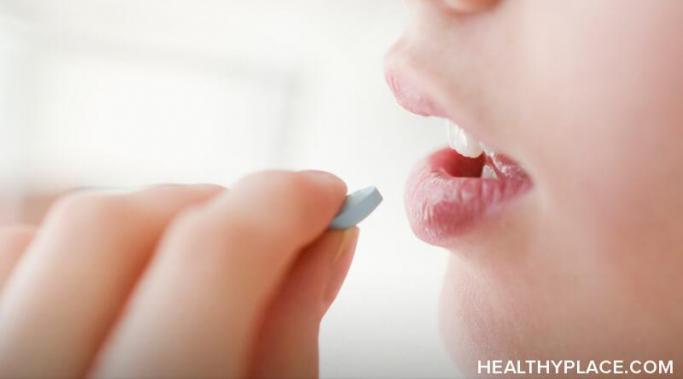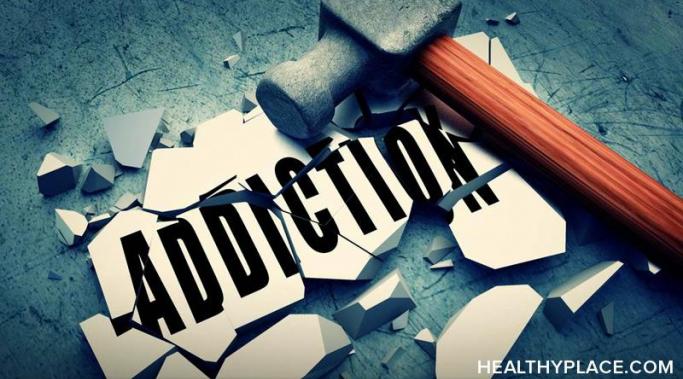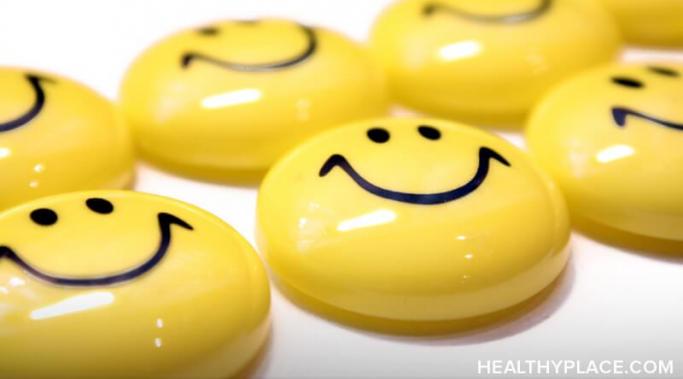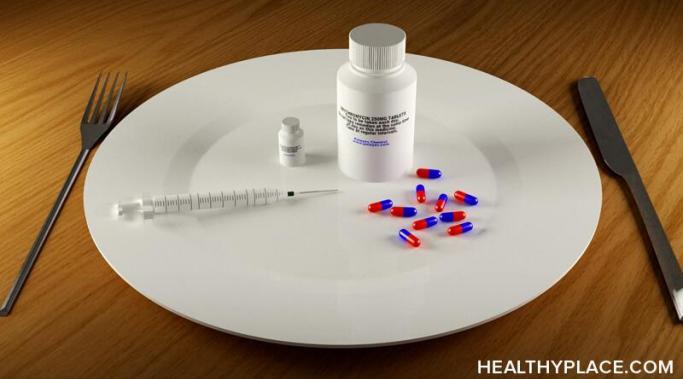Many times during treatment, you may have to consider whether to change your bipolar medication. This is a complicated question and a personal one. The answer varies from person to person. If you're considering changing your bipolar medication, here are some things to think about.
Medication Side-Effects
It's so often the case that a doctor won't listen to you. I've had it happen over and over and over again. Some doctors are worse than others, of course, but it feels like they all do it on some level. I know they use their clinical judgment to assess whatever you say in an appointment, but still, it's no fun when a doctor won't listen to you.
I live alone with bipolar disorder, and recently, someone asked me how I do it. I have rarely thought about such a thing as we all just work with the life with have, but let's talk about how I survive as a person living alone with bipolar disorder.
I had never heard of gambling addiction being a possible side effect of aripiprazole (Abilify) or any other drug. That's why I was shocked to read the headline, "Patients given aripiprazole 'should be told of gambling addiction risks'" in "The Guardian." I consider "The Guardian" to be a source of reliable and fact-checked information, so I looked into it further. It turns out that many people have now recognized that a possible side effect of aripiprazole is gambling addiction.
Antipsychotics are a class of medications that many people don't like to take. In fact, I was terrified of the notion that it was even a possibility once upon a time. But antipsychotics are often used to treat bipolar disorder and some depression, along with illnesses like schizophrenia, with which we classically associate psychosis. But even though antipsychotics are approved for use in those areas — thus proving they do work for some with those illnesses — people still don't like to take antipsychotics. Why don't people like to take antipsychotics? Well, if you're me, it's because you've tried them.
I checked my Twitter feed this morning and learned of a new unique bipolar depression medication. I'm going to be honest; it made me smile and set me up for a great day. This is not necessarily because I want to run out and take it, but more because I'm glad people with bipolar disorder suffering from depression finally have a new option that is different than the ones we have been working with for years. A unique bipolar depression medication almost feels like a safety blanket to me.
Going off bipolar medication is a bad idea -- well, it's almost always a bad idea. I know why people want to do it. I would suggest that pretty much everyone on bipolar disorder medication has wanted to go off of it multiple times during treatment. This is completely normal and almost unavoidable. In spite of this strong desire, though, going off bipolar medication is almost always a bad idea.
You have to consider the risk vs the reward in the treatment of mental illness. Well, actually, you have to consider the risk vs the reward in many things but it's particularly critical when you're talking about the treatment of an illness. This is because nothing comes for free. No medication (or alternative treatment, for that matter) comes without side effects. You have to be aware of this going in so you can make a good decision. You have to understand risk vs reward in the treatment of mental illness.
Medication noncompliance in bipolar disorder is generally considered a bad thing -- and it generally is -- but can medication noncompliance ever be a good thing? I would say so, in very limited situations. Read on to see why medication noncompliance in bipolar disorder can occasionally be a good thing.
Bipolar treatment changes are often brutal, as anyone who has gone through them knows. And in my case, there always seems to be some kind of change going on either to deal with a new symptom or mitigate a side effect. And while there are algorithms for treating bipolar disorder, no algorithm takes a patient through a 20-year course of the illness that doesn't respond well to medication. No algorithm outlines the cocktails the likes of which I, and many others, take. This means that doctors are using their clinical judgment and experience rather than empirical evidence to make treatment decisions. In other words, they're guessing. Don't get me wrong, they're guessing intelligently, to the best of their ability, but guessing really is what's happening with many bipolar treatment changes.









